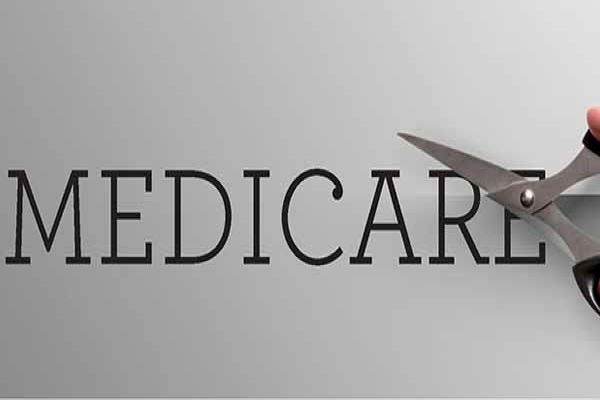
If Congress does not act by the end of 2023 to stop the impending Medicare physician payment cut, many practices will be forced to reduce available health care services, cut office hours, or even forgo treating Medicare patients altogether, organized medicine has warned over and over in its months-long advocacy campaign.
Unfortunately for Haskell family physician C. Wayne Cadenhead, MD, this prediction has come true.
After 45 years, his rural independent practice was slated to close on Dec. 21, largely because of successive Medicare physician pay cuts that have eroded its financial viability and made it near impossible to recruit staff at competitive wages.
“I’ve had enough,” he told Texas Medicine Today.
Dr. Cadenhead had hoped to remain open through July 2025, when he will turn 75 – the same age his physician father was when he closed his own private practice in Haskell. But Medicare physician pay cuts made the decision for him and his patients, whose remaining care options are the county hospital or a handful of family physicians practicing in a 30-mile radius.
“America’s physicians and their patients deserve better,” medicine pleaded to federal lawmakers in a Nov. 16 letter.
Although Dr. Cadenhead’s practice cannot be saved, the Texas Medical Association, American Medical Association, and others in organized medicine continue to urge immediate congressional action on federal legislation that could spare others from the same fate.
In the short term, the Preserving Seniors’ Access to Physicians Act of 2023 (House Resolution 6683) by U.S. Rep. Gregory Murphy, MD (R-North Carolina), would eliminate the nearly 3.4% Medicare physician pay cut slated to take effect Jan. 1. The bipartisan bill is co-sponsored by U.S. Reps. Michael Burgess, MD (R-Texas); Larry Bucshon, MD (R-Indiana); Danny Davis (D-Illinois); Jimmy Panetta (D-California), and Brad Wenstrup (R-Ohio).
In pursuit of a long-term fix to the flawed Medicare physician payment system, medicine also continues to advocate for the bipartisan Strengthening Medicare for Patients and Providers Act (House Resolution 2474), which would provide annual inflation updates to the Medicare physician fee schedule, among other reforms.
“These bills show members of Congress have the desire to fix this problem and have multiple solutions at their disposal,” TMA President Rick Snyder, MD, said in a statement. “We just need Congress to act for the sake of our vulnerable patients.”
For Dr. Cadenhead and physicians like him, such intervention is long overdue.
His practice used to have four physicians as well as the capacity to perform surgeries and obstetric services.
Initially, Dr. Cadenhead supplemented anemic Medicare payments by working overnight shifts at the local emergency department. But at age 74 he has had to cut back.
Now in its final days, his practice consists of himself, a nurse, a receptionist, and a business manager. The current Medicare physician fee schedule already isn’t enough to cover costs, and with a 3.4% cut starting Jan. 1, “We can’t survive on that,” Dr. Cadenhead said.
Between 2001 and 2023, Medicare physician payments decreased by 26% when adjusted for inflation, whereas Medicare payments for hospitals and other health care facilities generally have kept pace with inflation, according to AMA.
Such payment pressures compounded the practice’s other financial challenges – which include keeping up with medical liability insurance and staffing.
“We’re loosely surviving on my retirement funds and what private pay we get,” he said
TMA staff experts say HR 6683 and HR 2474 aren’t likely to come up for a vote until the new year, when Congress plans to include several health care-related bills in an appropriations package to fund the federal government in 2024 and to avert a looming shutdown on Jan. 19.
Robert Bennett, TMA’s vice president of medical economics, adds that depending on when and if HR 6683 passes in early 2024, physicians still may receive Medicare payments at the reduced rate, at least until their eligible claims are reprocessed according to the new law.
Another hurdle is the lack of Senate companion legislation to the two House bills. TMA – along with AMA and scores of medical society signatories – recently wrote to Senate leadership urging them to intervene.
TMA equips you with the information you need to help stop the Medicare physician pay cut. Get involved in this crucial advocacy effort by downloading the toolkit with ready-made social media graphics and posts, sample letters to the editor, a sample op-ed, and an Action Alert to send directly to legislators.